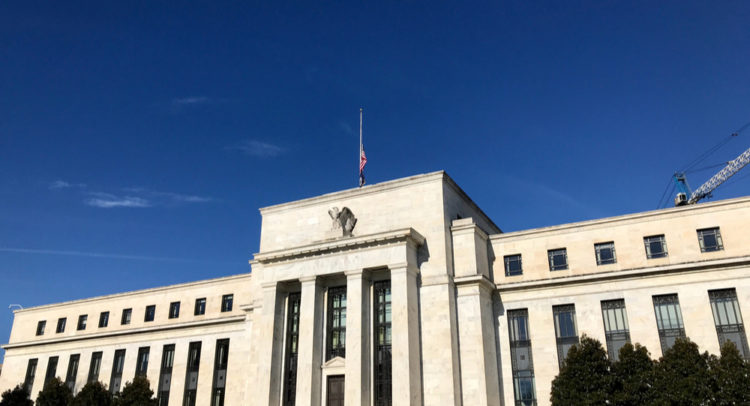Central banks around the world are shifting gears. They are ending the pandemic era with easy money policies to fight the resurgence of inflation.
Discover the Best Stocks and Maximize Your Portfolio:
- See what stocks are receiving strong buy ratings from top-rated analysts.
- Filter, analyze, and streamline your search for investment opportunities with TipRanks’ Stock Screener.
Yesterday, the Federal Open Market Operations Committee (FOMC) — the monetary policy-making arm of the Federal Reserve — ended its two-day meeting with the issuing of a roadmap for ending easy money.
According to this map, the nation’s central bank will end easy money policies of the pandemic era in two stages. First, it will expedite tapering, the rolling back of its Treasury bonds and mortgage-backed securities program, meaning that it will stop adding liquidity to the U.S. economy.
Tapering is expected to be completed by March 2022. Then, soon after, the Fed will begin the next stage, tightening, which will include three hikes in its Fed Funds Rate by the end of 2022.
Meanwhile, ECB, the Eurozone Central Bank, is expected to taper on Thursday, ending its net purchases under its pandemic emergency buying program by March 2022.
Separately, the Bank of England (BoE), Great Britain’s Central Bank, announced this morning that it is raising its key policy rate, meaning that BoE is already tightening.
Tightening is a much different policy than tapering. While tapering is slowing the flow of liquidity to the economy, tightening takes liquidity out of the economy.
The shift in central bank policies from monetary easing to monetary tightening follows the resurgence of inflation, the old villain of market economies.
Last week, the American government announced that the Consumer Price Index — a measure of inflation at the retail level — rose 6.8% in November, following a 6.2% gain in October. These rates are the highest the American economy has seen since the 1980s, raising anxiety both on Main Street and Wall Street about the value of the U.S. dollar.
Inflation has been rising on the other side of the Atlantic, too. Recent inflation statistics out of ECB show that inflation in the Eurozone runs at an annual rate of 4.9%.
Then there is the U.K., where inflation runs at an annual rate of 5.1%.
The end of easy money is usually bad news for financial markets, especially for risky assets that are sensitive to interest rates, like equities. Moreover, they make investors rethink valuations, as interest rates are the discounted factor in conventional valuation models, like the Discounted Cash Flow Model.
The Dow Jones Industrial Average (DJIA Index) gained 0.2%, while the tech-heavy Nasdaq 100 gained 327 points lost 2% on Wednesday afternoon, suggesting little impact by the announcements.
The FOMC policy shift was well-telegraphed already by the Fed Chair in his Congressional testimony a couple of weeks ago. Thus, it was fully discounted by traders. Second, it raises the hope that this policy shift will manage to bring inflation under control. Therefore, it will ease pressure on long-term interest rates, which move with inflation.
In short, Wall Street’s action in recent weeks was a “selling in the rumor, buying in the news situation.”
Disclaimer: The information contained in this article represents the views and opinion of the writer only, and not the views or opinion of TipRanks or its affiliates Read full disclaimer >









